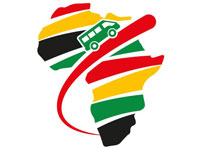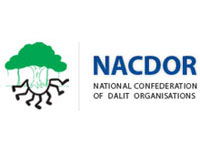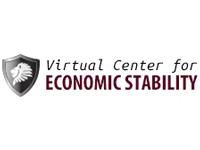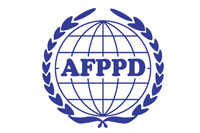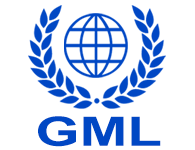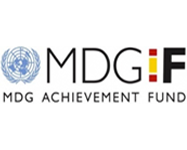The Kenyan constitution guarantees the right to a life, right to health care services, adequate housing, food, clean and safe water, education, and social security. Central to the constitution is devolution of resources which guarantees that public services reach the poorest at community level, while advocating for mechanisms to exercise an effective citizen oversight role on public resources
According to the United Nations General Assembly (UNGASS) country Status Report 2010, the estimated number of people living with HIV in Kenya is 1.3 million to 1.6 million. In 2009, new infections among adults above 15 years were estimated to be at 100,000 it is estimated that over 36,000 Kenyans are being treated with antiretroviral therapy (ART), and thousands of others are waiting to start treatment. Policy guidelines are aimed at making ART accessible to all who can benefit from such treatment.
In July 2009, three people filed a petition with the declaration that their fundamental rights were likely to be infringed by the implementation of the Anti Counterfeit Act of 2008, which limits access to affordable and essential drugs
In September 2009, Aids Law Project (ALP) subsequently enjoined in the petition as an interested party and their stay was granted. ALP’s arguments weighed heavily in favor of granting a conservatory order (injunction) against the operation of section 2, 32 and 34 of the Anti Counterfeit legislation to allow for the importation of generic medicines to Kenya, pending the hearing and determination of the Petition.
The three petitioners sought to have the A-C Act declared unconstitutional on the grounds that it infringed on their right to life and access to generic medicines. This is because the definition of counterfeit held a broad definition and interpretation of what would constitute generic and counterfeit.
Quote:
Anti-counterfeit Law, 2008, Section 2 (d)Interpretation; in relation to medicine, the deliberate and fraudulent mislabeling of medicine with respect to identity or source, whether or not such products have correct ingredients, wrong ingredients, have sufficient active ingredients or have fake packaging;
According to World Health Organization (WHO) a generic drug is a pharmaceutical product, usually intended to be interchangeable with an innovator product that is manufactured without a license from the innovator company and marketed after the expiry date of the patent or other exclusive rights.
From this point ALP, working on access to treatment, and Kenya Treatment Access Movement (KETAM), lead organization on the health Category of Huduma together and other like minded organizations joined in the fight to have the court make a ruling on the amendment of the act. They made several visits to the court for the hearing of the case. There were days when the hearing did not take place thus arousing suspicion among civil society members of foul play along the corridors of justice as was highlighted on the Huduma platform. www.huduma.or.ke .
In June 2010, the case was given a mention in court and a directive order was given that petitioners and respondents file their submissions with authorities within 21 days. In October 2010, the leave to amend petition was granted and the petition papers later served to the AG court the following month. This later saw “a cat and mouse” chase concerning the dates of scheduled hearing until January 2012 when the case was first heard in court with submissions made by petitioners advocates, Interested parties advocates and UN special rapportuer.
Finally, on 20th April 2012, the High court Judge made a ruling that ordered the review of the A-C 2008 to allow importation of affordable generic HIV and other essential drugs in Kenya.. High Court Judge Mumbi Ngugi found that the Act failed to clearly distinguish between counterfeit and generic medicines. She called on parliament to review these ambiguities that could result in the arbitrary seizure of generic medicines under the pretext of fighting counterfeit drugs.
The Judge observed that the Act is Intellectual Property (IP) enforcement oriented as opposed to the protection of the public from substandard products. She observed that the protection of IP rights should not outweigh the right to health; therefore, any legislative measure limiting access to medicine violates the right to life. She further declared that the right to life does encompass the right to affordable medicines.
The ruling suspends the powers of the anti-counterfeit Agency to interfere with the importation and distribution of generic drugs in Kenya. This therefore means that the offending provisions in the Act would require amendment.
Expenditure on medicines accounts for a major proportion of health costs in developing countries. This means that access to treatment is heavily dependent on the availability of affordable medicines. Like many low- and middle-income countries, more than 80 percent of the drugs used by Kenyans are generic and largely manufactured in India.
Patent protection is one incentive for the research and development of new drugs. The judgment ensures that government agencies cannot and will not interfere with the importation and distribution of generic medicines. However, there is also concern that the TRIPS agreement, which grants extensive patent rights to pharmaceutical companies, will prevent developing countries from producing or buying generic drugs that usually cost much less than brand name drugs. The United Nations Development Programme (UNDP) has questioned the compatibility of the TRIPS agreement with human rights law because of its impact on access to essential drugs in low-income countries.
CONCLUSION:
James Kamau CEO of KETAM said “the judgment is historic and protects not just Kenya, but the entire eastern African region. Uganda, Rwanda, Burundi, and so on – all the countries that depend on Kenyan ports to import their drugs – have now been shielded from the threat of being denied access to vital generics as a result of the ruling,”
He told IRIN/PlusNews. “We hope to see a ripple effect, where countries will pick up on this ruling and adapt it to protect their own citizens.”
“Even in Kenya this judgment is not just important for people living with HIV, but to all 42 million Kenyans, who depend on generics to treat all kinds of illnesses,” Kamau said. “It extends well beyond ARVs [antiretrovirals] and to drugs for opportunistic infections and all other diseases.”

